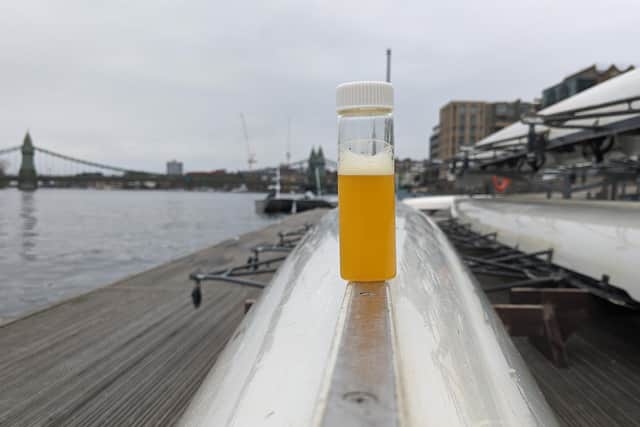No government wants water companies with long term debt requirements on its balance sheet - Martin Towers
These companies were set up as privatised utilities in 1989. Ofwat regulates their performance and behaviour as an economic regulator through league tables of comparators and five year business plans.
It is Ofwat’s job to ensure a well run WASC can access the necessary finance through an investment grade credit rating, thereby appealing to international investors in the corporate bond and equity markets.
Advertisement
Hide AdAdvertisement
Hide AdSuch investors have a long term time horizon and typically pension commitments reaching out for many years ahead, mirroring the long term nature of such businesses and their assets. The idea is that long run assets are low risk and these investors seek out safe predictable returns (dividends) at the low end of the scale. Not a sector for your typical short term private equity investors. Low risk, low reward is the characteristic of the sector as structured.


So what is going wrong at Thames? Any reference to the Ofwat league tables for years will find Thames a serial poor performer. Yet Thames has been regarded as an attractive flagship investment by some international investors, because it’s London. Privatisation was originally a way out of The Treasury needing to finance the industry-wide huge shortfall in investment in basic water supply e.g. replacing old Victorian pipes that leak, let alone burgeoning environmental requirements in wastewater.
The industry suffered for many years as a nationalised industry by being down the pecking order for investment against the NHS, education et al, as would still be the case today given the size of government borrowing post-Covid.
All water companies have high levels of typically long term debt. Unfortunately post-Covid and the onset of significant inflation, interest rates have risen sharply in a way that was unforeseen. The cost of that debt has ballooned in a way not envisaged in the five year plans of the WASCs in terms of recovering additional costs from customers. The same with rising energy costs to keep the water works working beyond what was in the business plan.
Advertisement
Hide AdAdvertisement
Hide AdSo Thames finds its business plan fixed income now insufficient to cover rising operating costs and interest on the debt thanks to the inflation spike. Not being an efficient WASC and always liable to get fined, it was never going to find efficiencies to compensate and plug the gap.
Given the scale of the numbers involved, the need to continue capital investment, something has to give before the money runs out. No chance of anything left for shareholders so no returns, no dividends. But also no more raising finance in the bond market because the credit rating has collapsed into sub-investment grade.
In short as things stand no financier will touch Thames with a barge pole. But the last thing Rachel Reeves wants upon arrival at The Treasury is Thames (or any WASC) back on the government balance sheet with its continuing long term debt requirements.
Martin Towers is the former finance director of Kelda Group, which was the parent company of Yorkshire Water.
Comment Guidelines
National World encourages reader discussion on our stories. User feedback, insights and back-and-forth exchanges add a rich layer of context to reporting. Please review our Community Guidelines before commenting.